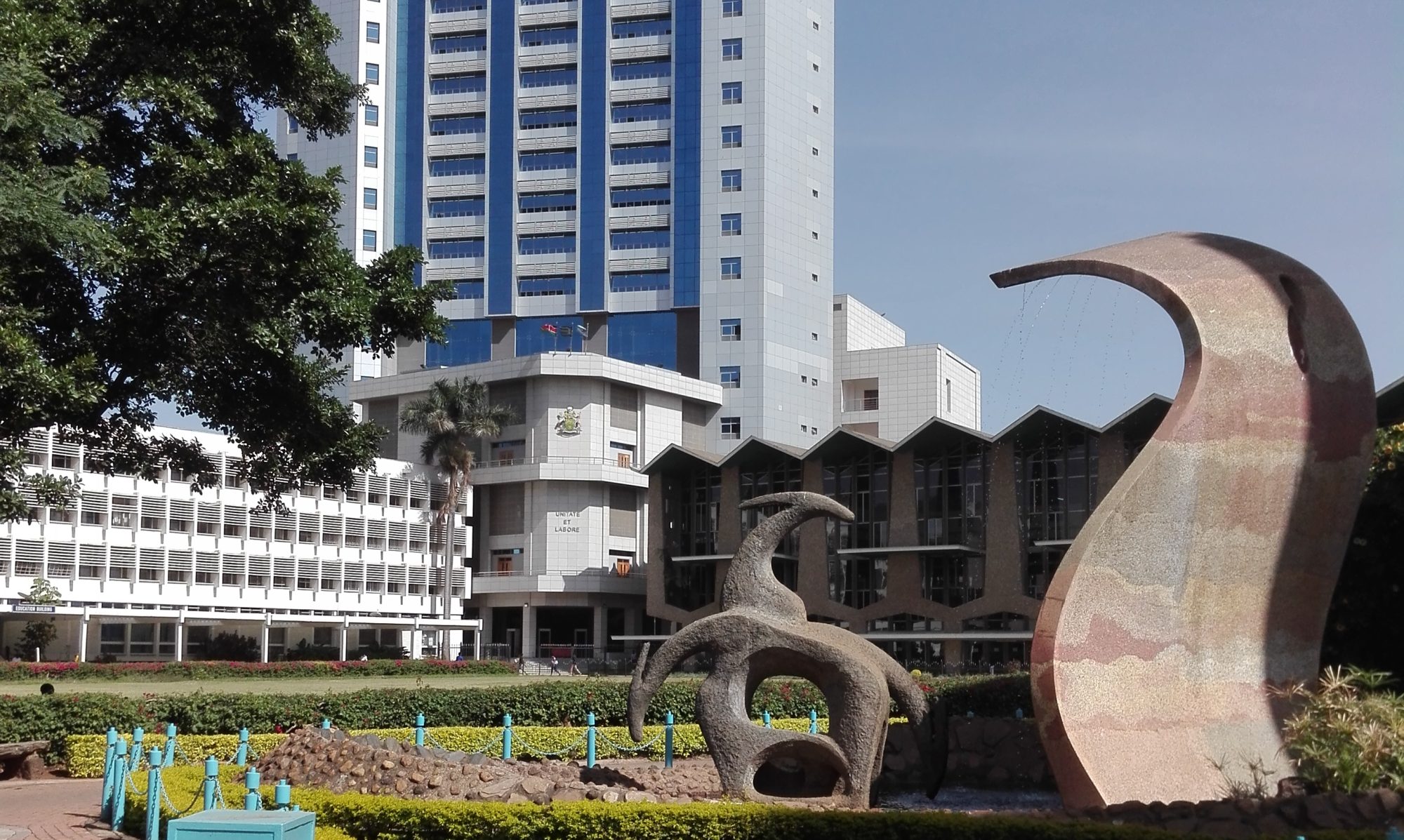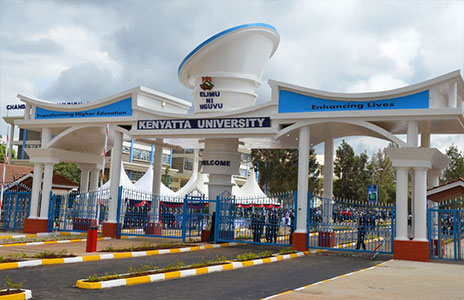
Biology, the scientific study of life and living organisms, is a very broad field that ranges from microbes to human beings, to entire ecosystems. The Bachelor of Science in Biology program has a strong emphasis on biodiversity and is designed for students with a passion for the living world. Students study cellular and molecular biology, genetics, evolution, physiology, ecology, and animal and plant structure.
Biology is a research-intensive science that can lead to a wide range of study areas, like environmental work, medicine, microbiology, or agriculture. The hands-on nature of the course means graduates have a sound understanding of the theory underpinning biological sciences coupled with skills that can be applied in a wide range of professions. During the BSc in Biology program students are taught how to actively participate in the scientific process by searching the scientific literature, designing and conducting experiments, and presenting their results in written and oral forms.
Biological science is crucial to several sectors of the economy including agriculture, human and animal health, safe and clean environment, biotechnology, conservation of natural resources. Today?s biologists require a strong background in cellular and molecular biology, organismal biology, genetics, evolution, and ecology. Additionally, you will be required to complete courses in chemistry, physics, and mathematics, ensuring a strong foundation in the core sciences.
In addition to developing exceptional written and oral communication skills in this program, students also develop strong critical and analytical thinking skills, advanced information acquisition and management skills, as well as precise attention to detail. All of these abilities are highly sought after in the business world and can be applied to practically any scenario.
Opportunities available to BSC in Biology graduates are also broad and range from careers in research to medicine to education. Many BSc in Biology graduates go on to professions in the health sciences where they apply their understanding of living organisms on a daily basis. Others move on to graduate school or careers in research where they generate new knowledge about living organisms for the scientific community.
Entry Requirements
To be eligible for admission into the BSc in Biology program candidates must satisfy the minimum University entry requirements of mean grade C+.
In addition to meeting the minimum University general admission requirements, candidates for the Bachelor of Science in Biology degree program must have any of the following:
- Kenya Certificate of Secondary Education (KCSE) with a minimum mean grade of C+ or equivalent qualifications, and a minimum of C+ in Biology or Biological Sciences and C+ in any other two science subjects from the following: Chemistry, Physics, Physical Sciences, Geography and Mathematics.
- Kenya Advanced Certificate of Education (KACE) with at least two Principal level passes one of which must be in Biology and the other in any other science subject from the following: Mathematics, Chemistry, Geography, Physics.
- Ordinary/Higher National Diploma or equivalent in Biology or Biological Sciences with a credit pass or equivalent qualification.
- A degree from a recognized university, or equivalent qualifications.
Objectives of Bachelor of Science in Biology
Today?s biologists require a strong background in cellular and molecular biology, organismal biology, genetics, evolution, and ecology.
The Bachelor of Science degree program aims at producing graduates with the knowledge and practical skills in life sciences that prepare them to contribute directly to food security, health, and poverty eradication. Furthermore, the course is designed to produce capability for food processing industries, environmental protection, and wildlife conservation which require specialists in biology.
Objectives of the BSc in Biology program
- To produce holistic graduates by equipping students with a broad-based foundation in biology including emerging areas in molecular biology and biotechnology.
- To equip students with the knowledge and practical skills in the following broad areas of biology: ecology, parasitology, entomology, physiology, taxonomy, microbiology, genetics, and molecular biology; that prepare them to directly contribute to food security, health, and poverty eradication.
Upon completing this BSc in Biology course, graduates should be able to:
- Demonstrate competence in different areas in the biological sciences such as botany, zoology, genetics, molecular biology.
- Apply the necessary knowledge and technical skills in biological science sectors and other service industries in the private, public, and community sectors.
- Invent and manage their own ventures and be involved in community development.
- Develop skills in scientific research and writing that will enable them to work together with biological research teams
- Establish a foundation for continuation into advanced degrees in various fields in the biological sciences.
What you will study
Year 1
- Communication Skills
- HIV and AIDS
- Elements of Economics
- Plant diversity
- Introduction to Genetics
- Invertebrate Zoology
- Lower Plants
- Vertebrate zoology
- Physical Chemistry 1
- Organic Chemistry 1
- Inorganic Chemistry 1
- Fundamentals of Ecology
- Introduction to Microbiology
- Information Technology
Year 2
- Cell Biology
- Biomolecules
- Gymnosperm and Angiosperm Taxonomy
- General Microbiology
- Plant Ecology
- Plant Biochemistry
- Histology
- Fundamentals of Aquatic Ecology
- Basic Immunology
- Laboratory Techniques and Safety
- Principles of Plant Pathology
- Plant microbial interactions
- Principles of Parasitology
- General and Molecular Genetics
Year 3
- Plant Physiology
- Evolutionary Biology
- Biostatistics
- Entomology
- Bioethics and Biosafety
- Research Methodology
- Microbial Metabolism
- Mycology
- Virology
Botany Major
- Biosystematics and Palynology
- Plant Cell Structure and Function
- Plant Nematology
- Eco-physiology
- Plant taxonomy
- Ethnobotany
- Biosystematics and Palynology
- Plant Population Ecology
- Eco-physiology
- Arid Land Ecology
Zoology Major
- Fundamentals of Animal Welfare
- Animal Physiology
- Developmental Biology
- Animal Behavior and Ethology
- Advanced Vertebrate Zoology
- Animal Ecology
- Theoretical Ecology
Year 4
- Community ecology
- Population Genetics
- Bio-Entrepreneurship
- Environmental Biology and Conservation
- History and Philosophy of Biology
- Limnology and Marine Biology
Botany Major
- Research project (Optional)
- Plant Morphogenesis
- Ecological Monitoring
- Economic Botany
- Evolution
- Marine Botany
- Advanced Taxonomy
Zoology Major
- Research project (Optional)
- Ecological Monitoring
- Evolution
- Fresh Water Ecology
- GIS and Remote Sensing
- Environmental Impact Assessment and Monitoring
- Research project (Optional)
- Environmental Biology and Conservation
- Limnology and Marine Biology
- Applied Entomology
- Applied Parasitology
- Animal Breeding and Improvement
- Environmental Physiology
Related articles
-

A Guide to Civil Engineering Degree and Diploma Programs in Kenya
08-Nov-2025 -

Electrical Engineering in Kenya: A 2025 Guide for KCSE Graduates
08-Nov-2025 -

Mechanical Engineering in Kenya: A 2025 Guide for KCSE Graduates
08-Nov-2025 -

Engineering Courses in Kenya: A Guide for 2025 KCSE Graduates
08-Nov-2025 -

Education Pathways in Kenya — From Basic Education to Tertiary | College Guide
06-Nov-2025 -

The Bird and the Mirror: A Reflection on Identity, Perception, and Illusion
07-Feb-2025
Colleges offering Bachelor of Science in Biology

Starehe
University of Nairobi

Ruiru
Kenyatta University

Kitui West
South Eastern Kenya University

Belgut
University of Kabianga

Kisumu West
Maseno University

Chuka Igambangombe
Chuka University

Kirinyaga Central
Kirinyaga University

Kilifi South
Pwani University

Nyeri Town
Dedan Kimathi University of Technology

Chesumei
